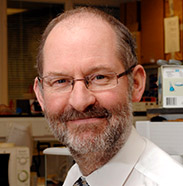2022 winner

Rank Prize for Nutrition
For outstanding research into plant genetics and metabolism leading to enhanced nutritional qualities of fruits and vegetables
Professor Cathie Martin FRS
Professor Cathie Martin FRS is the winner of the prestigious 2022 Rank Prize for Nutrition. Her research has unlocked new knowledge of the genetics and metabolism of plants. And she’s started applying this knowledge to make fruits and vegetables even more nutritious.
2022 marks the 50th anniversary of Rank Prize, which has been celebrating outstanding scientific breakthroughs since 1972. The Rank Prize is awarded biennially in the fields of nutrition and optoelectronics: two areas related to Lord Rank’s business interests. The prize is awarded to individuals who have made a significant contribution in these fields, where an initial idea has been carried through to practical application that has or will have demonstrable benefit to humanity.
The prize was formally awarded in London on July 4, 2022.


Professor Martin’s outstanding research combines fundamental insights into the genetics of metabolic processes in plants and how we can use them to enhance the nutritional composition of human foods. She is a powerful advocate, and practitioner, of plant science for human health. As we tackle the twin challenges of increasing human health and protecting the health of the planet, her research is globally significant.
Professor John Mathers Chair, Nutrition Committee
Why Professor Martin’s work is important
Cathie’s early research focussed on understanding how plants regulate their flower pigmentation – specifically the biosynthesis and diversity of anthocyanins – the pigments that give plants their characteristic red, purple and blue colours. She identified the key genes that regulate anthocyanin biosynthesis in plants, using the genetic model Antirrhinum majus. This allowed her to pinpoint several transcription factors (including members of the MYB class) that coordinate the expression of genes encoding anthocyanin biosynthesis enzymes.
Cathie then refocused her research on finding ways to increase the concentrations of these important dietary phytochemicals in edible plant parts – especially in tomatoes. Anthocyanins have been shown to protect against various forms of chronic, diet-related, human diseases. They also promote cardio-metabolic and cognitive health.
Professor Martin’s work in practice
By expressing two transcription factors from Antirrhinum in tomato, Cathie created purple fruits with anthocyanin levels similar to those found in blackberries and blueberries. The fruits’ antioxidant capacity tripled. And when these fruits were fed to cancer-susceptible mice, their lifespan increased by up to 30%.
Later research showed that fruit-specific expression of the transcription factor AtMYB12 increased flavonoid biosynthesis to the point where flavonols and hydroxycinnamates composed up to 10% of the fruits’ dry weight. This paved the way for an effective production system for many bioactives and high value nutritional compounds in fruits and vegetables.
Building on strong collaborations and a love of Italian food, Cathie also studied the Sicilian blood orange – a citrus fruit with naturally high levels of anthocyanins. By examining the mutation involved in anthocyanin accumulation, Cathie and her colleagues explained the reason behind the cold-dependent pigmentation that limits cultivation of the blood orange. This understanding makes it possible to modify other types of orange to produce high levels of fruit-specific anthocyanins in a wide range of growing conditions. This could prove the key to cultivating these fruits for their juice in subtropical and tropical regions.
Professor Cathie Martin: “I was sitting in my office at home, locked down but snug with a log fire even though it was April 1st, when I received an amazing email telling me I had been nominated for the Rank Prize. Bursting with excitement, I emailed my husband who replied, ‘Do you know what day it is?’ Fortunately, his cynicism proved unfounded, and receiving the Rank Prize is wonderful recognition that our research might have achieved something worthwhile.”
About Professor Cathie Martin FRS
Professor Cathie Martin is a group leader at the John Innes Centre and Professor at the University of East Anglia. She is co-director of the PhD programme EDESIA: Plants, Food and Health from crop to clinic funded by the Wellcome Foundation.
Cathie’s research interests lie in using plant science to improve human diet and health; her recent research has focused on how crops can be fortified to improve diets and address the global challenge of escalating chronic disease. This work has involved linking leading clinical and epidemiological researchers with plant breeders and metabolic engineers to develop scientific understanding of how diet can help to maintain health, promote healthy ageing and reduce the risk of chronic disease.
Cathie has recently started collaborative research in China, to study Chinese medicinal plants, particularly those that produce anti-cancer metabolites for complementary therapies.
Cathie was editor-in-chief of The Plant Cell (2008-2014) and is now an associate editor for Molecular Horticulture. She’s a member of EMBO and AAAS, a Fellow of the Royal Society and in 2014 she was awarded an MBE for services to Plant Biotechnology.


